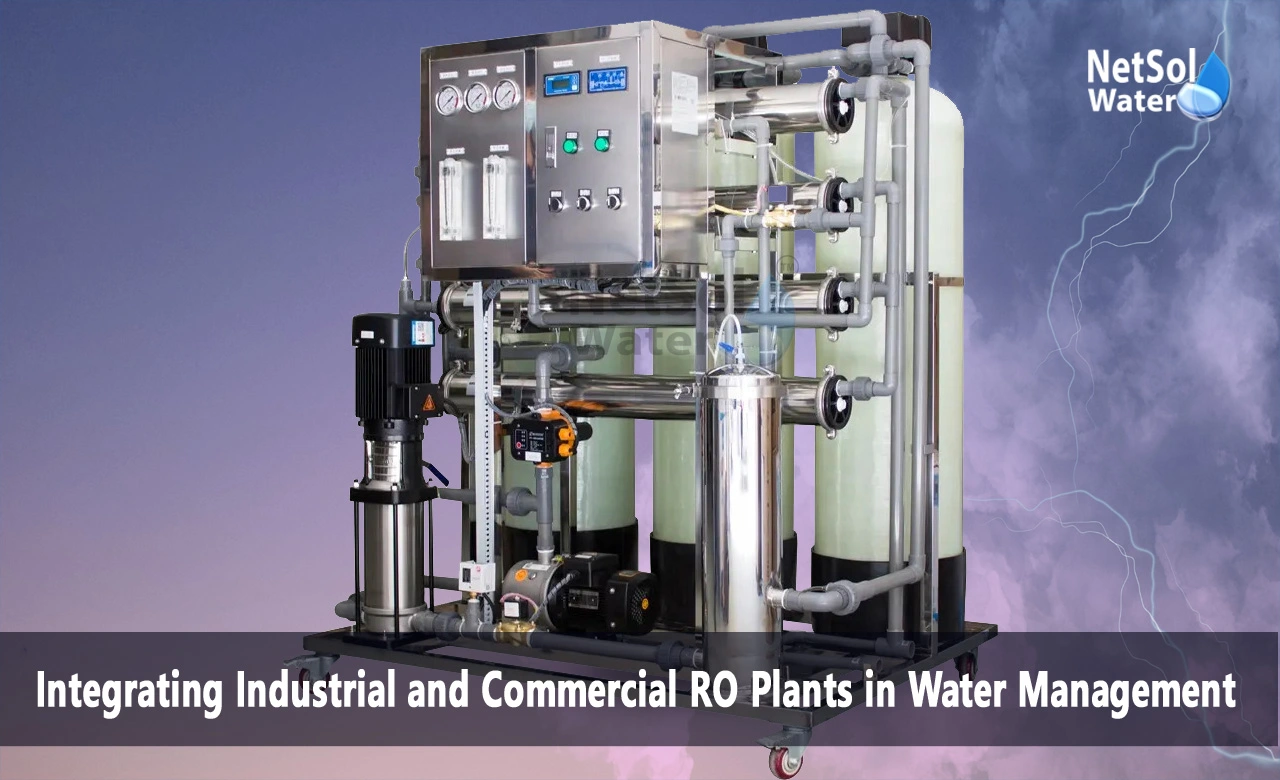Integrating Industrial and Commercial RO Plants in Water Management
Efficient water management is essential due to water scarcity and quality issues, especially with the world's growing population and the impact of climate change on water supply. Reverse Osmosis technology revolutionizes water treatment. We will discusses how industries and businesses use industrial and commercial RO plants in their water management plans.
Reverse Osmosis
Reverse Osmosis cleanses water using a semi-permeable membrane to eliminate pollutants. The technique applies pressure to overcome osmotic pressure driving water through the membrane while leaving impurities behind.
How RO Works?
1. Pressurization: High-pressure pumps drive water through the system.
2. Separation: The semi-permeable membrane inhibits pollutants while allowing water to pass.
3. Collection: The system collects purified water on one side of the membrane and concentrated waste (brine) on the other.
RO eliminates up to 99% of dissolved salts particles colloids organics bacteria and pyrogens from water. This makes it perfect for many industrial and commercial uses.
Industrial Applications of RO Plants
Industries employ RO units to address their high-quality water needs while minimizing water usage and wastewater output.
Power Generation
Power plants utilize RO to cleanse water for boiler feed and cooling systems. This reduces scale formation and corrosion extending equipment life and improving efficiency.
Pharmaceuticals
The pharmaceutical sector relies on RO plants to deliver ultra-pure water for drug manufacture. This assures compliance with severe regulatory criteria.
Food and Beverage
Food and beverage firms utilize RO plants to purify water for product formulation cleaning and sanitation. This assures consistent product quality and safety.
Semiconductors
The semiconductor industry uses RO as an important step in obtaining the high-purity water needed for chip fabrication.
Commercial Applications of RO Plants
Commercial spaces benefit from RO technology particularly in places with low water quality or limited water supplies.
Hotels and Resorts
Hotels and resorts employ RO plants to provide clean safe drinking water for guests while minimizing bottled water use. They also increase the quality of water used in laundry and culinary operations.
Hospitals and Healthcare Facilities
Healthcare establishments utilize RO water for sterilization laboratory work and dialysis. This prevents waterborne illnesses and assures accurate test findings.
Office Buildings
Large office complexes use commercial RO plants to offer high-quality drinking water to employees minimizing bottled water use and enhancing sustainability.
Integrating RO Plants into Water Management Strategies
Effective integration of RO plants into water management plans needs careful planning and consideration of numerous issues.
Water Source Assessment
Assessing the water source assists in constructing an adequate pre-treatment system and enhancing RO performance. This includes assessing water quality quantity and seasonal fluctuations.
Energy Efficiency
RO plants can demand tremendous energy. To increase sustainability consider:
1. High-efficiency pumps and motors
2. Energy recovery devices
3. Variable frequency drives
4. Optimized system design
Brine Management
Managing the concentrated waste (brine) produced by RO plants can be tricky. Strategies for brine management include:
1. Zero Liquid Discharge (ZLD) systems
2. Brine concentration and crystallization
3. Beneficial usage of brine in industrial processes
4. Proper disposal in compliance with regulations
Water Reuse and Recycling
Integrating RO plants with water reuse systems greatly reduces overall water demand. Treating wastewater using RO permits reuse in multiple applications producing a closed-loop system.
Conclusion
Integrating industrial and commercial RO plants into water management programs offers considerable benefits in water quality conservation and sustainability. While challenges persist, technological improvements and inventive techniques make RO an increasingly feasible alternative for tackling water scarcity and quality issues.
The significance of RO plants in water management will certainly continue to rise as we move towards a more water-constrained future. Organizations can successfully deploy RO technology to improve their water management practices and contribute to overall water sustainability by carefully evaluating the aspects outlined above.
To explore customised commercial RO plants, Industrial RO plants, ETP or STP solutions for your needs in your areas and nearby regions, contact Netsol Water at:
Phone: +91-965-060-8473, Email: enquiry@netsolwater.com



